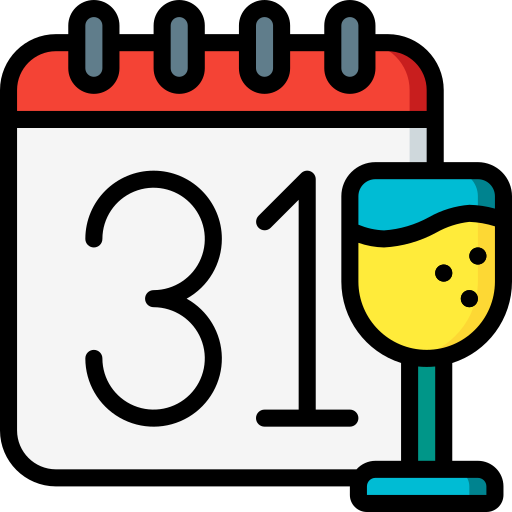Budgeting Tips for a Stress-Free New Year
Budgeting tips for a stress-free New Year can be the key to regaining control over your financial life. As the festive season draws to a close, many of us feel the financial pinch that comes along with it. Whether you’re looking to save for a holiday, pay off debts, or foster a more financially secure future, a well-structured budget is essential. In this article, we will explore in-depth budgeting strategies that can ease your mind and enhance your financial well-being. By setting clear goals, tracking your spending, and learning valuable money-management techniques, you can embark on the New Year with confidence and peace of mind.
Understand the Importance of Budgeting
Budgeting serves as your financial roadmap. Many people fail to see it this way, often thinking of budgeting as a restrictive exercise rather than a liberating one. According to a survey by the National Endowment for Financial Education, 60% of Americans do not follow a budget, leading to financial stress and instability. It’s essential to shift your mindset toward budgeting as a pathway to wealth instead of a barrier.
Many experts assert that understanding your financial position is crucial. “A budget is merely a plan to manage your money, not a punishment,” says personal finance expert Suze Orman. With the right budgeting methods in your toolkit, you can take control of your financial future.
Create Financial Goals
The first step in your budgeting journey should involve setting clear financial goals. What do you want to achieve? Whether you wish to save for a dream vacation, build an emergency fund, or pay off credit card debt, specifying what you want helps to create a focused plan.
Begin by defining your short-term and long-term goals. Short-term goals can include saving $1,000 within three months, while long-term goals may include homeowners’ savings over five years. Keeping your goals specific, measurable, achievable, relevant, and time-bound (SMART) can help motivate you to stick with your budget.
Assess Your Income and Expenses
After setting your financial goals, the next step is gauging your income and expenses. Understanding how much money comes in and where it goes is vital to creating an accurate budget.
To assess your income, include all forms of earnings, such as salary, freelance income, and side hustles. Your expenses should include both fixed expenses, like rent or mortgage, utilities, and groceries, as well as variable expenses, like entertainment and dining out. This comprehensive understanding will serve as the foundation for your budgeting plan.
Craft a Realistic Budget
Using the information gathered, create a budget that reflects your financial situation. A popular method is the 50/30/20 rule, which allocates 50% of your income to needs, 30% to wants, and 20% to savings and debt repayment. This simple yet effective framework can provide guidance on where to allocate your funds.
It’s important to ensure your budget is realistic, allowing for flexibility. Unexpected expenses can arise, and having a budget that accommodates fluctuations will help prevent feelings of failure. Remember, budgeting is not a one-size-fits-all solution; tailor it to fit your life and priorities.
Track Your Spending
Maintaining a budget is only effective if you actively track your spending. This step can help reveal patterns and behaviors that may need adjustment. Consider using budgeting apps like Mint or YNAB (You Need A Budget) to simplify this process. Alternatively, keep a spending journal to note down all your expenses.
Tracking spending empowers you to take control. According to research, people who track their expenses tend to spend 20% less than those who do not. This conscious awareness of where your money goes helps pave the way for financial growth.
Prioritize Needs Over Wants
One of the most significant challenges in budgeting is distinguishing between needs and wants. Needs are essential expenses—things like rent, utilities, and groceries—while wants are discretionary, such as dining out or high-end clothing.
To stay within your budget, prioritize your needs. Be mindful of your discretionary spending and consider establishing a simple strategy: if it isn’t necessary for your day-to-day survival, think twice before purchasing it.
Automate Your Savings
One technique to boost your financial health is to automate your savings. Set up automatic transfers from your checking account to your savings account each month. This method ensures you are consistently saving without even thinking about it.
According to a Bankrate study, nearly 30% of Americans don’t have any savings set aside for emergencies. Automating your savings can help combat this concerning statistic by making saving a part of your routine.
Build an Emergency Fund
Life can be unpredictable, which is why establishing an emergency fund is crucial for a stress-free financial future. Ideally, you should aim to save 3-6 months’ worth of expenses to cover unexpected costs, such as medical bills or car repairs.
Start small if needed; even setting aside an initial $1,000 can significantly reduce anxiety in the event of financial surprises. Stashing away cash or using a high-yield savings account can optimize your emergency savings.
Review Ongoing Subscriptions
With various subscription services available today, it’s easy for these small expenses to add up. Analyze your monthly subscriptions to see what you are using. Cancel those that you no longer utilize or need.
According to a recent study, Americans waste over $130 billion a year on unused subscriptions. By regularly reviewing these services, you can take back control over your finances and identify monthly savings opportunities.
Use Cash Envelopes for Spending Limits
Cash envelope systems can help you control impulse purchases. Assign a cash amount for discretionary spending in categories like dining out or entertainment. Once the cash is gone, no more spending in that area.
This technique is widely praised by financial bloggers for its effectiveness. According to one popular budgeting expert, “Using cash instead of cards can help eliminate overspending because it feels more tangible.” This physical aspect of money management can make you more aware of your spending habits.
Engage in a No-Spend Challenge
Another clever way to enhance your budgeting skills is participating in a no-spend challenge. Challenge yourself to avoid all non-essential purchases for a month. This exercise helps reset your spending habits and encourages appreciation for what you already have.
Not only can this help you save money, but it will train you to find alternative activities that don’t require spending, like hiking or community events. Many people report that they feel liberated after completing a no-spend month.
Seek Professional Financial Advice
Sometimes, taking control of your finances can feel overwhelming. Seeking the guidance of a financial advisor can provide the expertise you need to set and achieve your financial goals. Financial advisors can offer personalized strategies and tactics tailored to your unique situation.
As financial expert Dave Ramsey states, “You can’t manage what you don’t measure.” Engaging a professional can help you achieve success on your financial journey.
Record Your Progress
Tracking and recording your progress can significantly boost your motivation. Consider maintaining a financial journal where you document your spending, savings, and goal achievements. Celebrate the small wins and successes as they motivate you to continue on your budgeting journey.
Additionally, reviewing your progress monthly will help you stay on track and adjust your budget as needed, ensuring that you are continually working toward your financial aspirations.
Conclusion
Budgeting is an essential skill that can lead to a stress-free New Year and a more secure financial future. By implementing these budgeting tips, including setting clear financial goals, tracking your spending, engaging in cash envelope systems, and participating in a no-spend challenge, you can take charge of your finances.
Remember, the journey toward financial freedom starts with understanding your needs, goals, and spending habits. In the coming year, let budgeting be the key to your financial peace.
FAQ
What is the 50/30/20 rule in budgeting?
The 50/30/20 rule suggests you allocate 50% of your take-home income to needs, 30% to wants, and 20% for savings and debt repayment.
How can I stay motivated to stick to my budget?
Setting clear financial goals, tracking your progress, and celebrating small victories can help maintain motivation on your budgeting journey.
What tools can I use to track my budget?
There are numerous budgeting tools available, including apps like Mint, YNAB, or personal finance spreadsheets to help you monitor your expenses and savings easily.
How often should I review my budget?
It’s beneficial to review your budget monthly to ensure you’re on track, make adjustments, and maintain accountability.
What should I do if I go over budget?
If you exceed your budget, audit your spending to identify the reason why. Learn from it and make necessary adjustments to stay on track in the future.
We invite you to share your thoughts or experiences with budgeting in the comments below. Additionally, feel free to ask any questions that may arise throughout your budgeting endeavors. Cheers to a financially fulfilling New Year!





